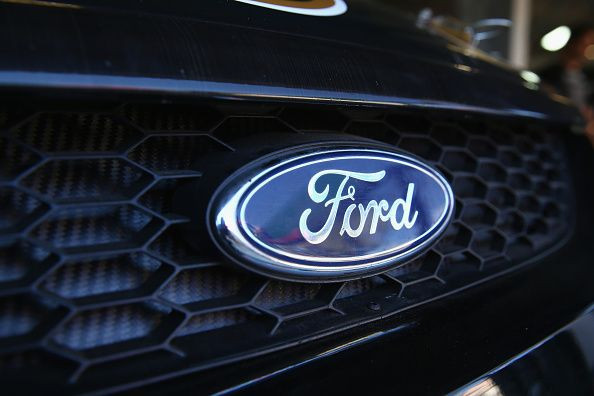Ford Motor Co. (F) Q1 2016 Earnings: Look For Automaker To Address Cooling China Market, North America Profit, Ongoing Rebound In Europe

A week after General Motors said it doubled its first-quarter profits largely on the strength of American demand for high-profit-margin SUVs and big pickup trucks, Ford Motor Co. is expected to report a similar effect on its bottom line, albeit weaker than its Detroit rival.
U.S. automakers, including U.S.-Italian company Fiat Chrysler, continue to draw their momentum from robust demand from U.S. consumers, and to a lesser extent from a slowly recovering European car market.
Ford will report its first-quarter earnings on Thursday morning before markets open in New York. On average, analysts polled by Thomson Reuters expect Ford to report earnings per share of 47 cents on $1.88 billion in profit in the first three months of the year, about double the 23 cents per share on $924 million in profit posted in the same period last year. Sales are expected to grow to $35.67 billion from $31.80 billion in the year-ago quarter.
“We see profit expanding in 2016, as Ford benefits from new products and favorable mix, improved international margins outside South America, partly offset by competitive pressures and wider losses in South America,” S&P Global Market Intelligence equity analyst Efraim Levy said in a research note earlier this month.
All of the Big Three U.S. automakers are facing what is likely to be the last year of an unprecedented seven-year growth spurt in domestic new-auto sales. Potential signs of a slowdown are already showing up, with lackluster March sales a possible harbinger.
Ford’s sales grew by more than 8 percent in the first quarter, but more than a third of those deliveries came from so-called fleet sales to corporate clients. Fleet sales are less profitable and tend to rise as retail demand slows. Ford’s inventory levels are high, and investors should look to see if this is a temporary situation or whether it’s a further sign that U.S. appetite for new-car sales may be starting to wither. Analysts expect U.S. sales to growth this year, as high as 17.7 million units compared to a record 17.5 million in 2015, but demand is slowing.
China, the world’s largest auto market in terms of volume sales (but not profitability), is also seeing signs of a downturn. But Ford is a relative latecomer to the country, and it notched 14 percent sales growth in the first three months of the year compared to the previous year, to nearly 315,000 vehicles.
The growth follows a record year for the company in China bolstered by its strong mix of crossover utility vehicles. Up next, Ford is spending $14.5 billion to introduce 13 electrified vehicles through 2020 and is aiming for up to one in four of its China sales to be hybrids, plug-in hybrids or fully electric cars.
The Chinese government wants more electrified vehicles on its roads, while the Chinese consumer is embracing utility vehicles. Ford is hedging its bets on both. But these are long-term goals, because China’s current slowdown pushed more auto dealers into losses last year, according to Bloomberg, and manufacturers are beginning to idle factory floor space. Ford and other automakers will have a harder time depending on the world’s largest auto market this year.
Ford’s plans for the year include adding a fourth production hub in South Africa for its Everest sport utility vehicle, which is already produced in Thailand, China and India. It’s part of a plan to introduce 30 vehicle models in Africa and the Middle East by 2020, the company says.
Last year Ford returned its European operations back to profitability following a painful and costly restructuring. Now the company is planning to introduce more of its globally available models, as well as a new Ford Fiesta. The company hopes to grab market share from Volkswagen AG on the continent in the wake of the German automaker’s troubles linked to its attempts to cheat on emissions testing.
“Early results in the aftermath of fallout from VW’s scandal are encouraging,” said J.P. Morgan automotive equity analyst Ryan Brinkman in a research note earlier this month.
© Copyright IBTimes 2024. All rights reserved.






















